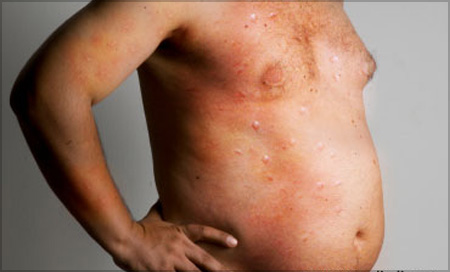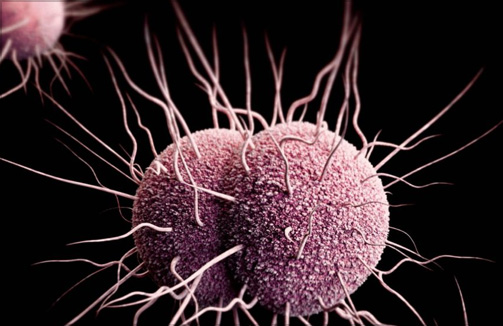| |
Sexology
|
| |
 |
| |
|
Discuss your Sex Problems with a Sex Specialist / Topmost Sexologist / Sex Doctor as early as possible otherwise it can spoil your Personality.
We are a team of Top Sexologists / Best Sexologists doctor in Kolkata (Calcutta) for male & female and we help men and women of all ages lead a happy sexual life which they could never imagine.
Sexual problems are very common and a majority of people feel embarrassed while talking about it and seeking a solution for it, the result is a ruined relationship, divorce, loss of self confidence and self esteem and increased level of stress.
The unique creation of God and the most precious gift we have been bestowed upon is LIFE - a golden opportunity to live and enjoy to the full on this beautiful planet. But to some unfortunate people, this so called boon brings pain and suffering due to SEX PROBLEMS.
Ushering in a new direction to the woeful sexual diseases, keeping burning desire to get rid of this ailment successfully, we have been trying our level best to cure the effected people, and with this begins a new era as the disease is no longer looked upon as a curse or menace to human life.
We at REJUVA offer cure Best Sexologist for common sexual problems like Erectile Dysfunction, Premature Ejaculation, Loss of Libido (loss of sexual desire), Infertility, etc, through a right combination of counseling and medication. and We also Treat Piles, Fissure, Fistula, Hydrocele , Sexually Transmitted Diseases Without Operation.
|
| |
• We welcome and honor the opportunity to care for you and your loved ones.
The center has comprehensive facilities for treating various diseases like -
|
| |
|
• Sexual Problem
• Erectile Dysfunction
• Premature Ejaculation
• Male Infertility
• Female Infertility
• STD ( Sexually Transmitted Disease )
• Male Sex Problems
• Female Sex Problems
• Excess Secretion of Watery Fluid
• Weak Semen
|
• Night Fall
• Piles (Hemorrhoids)
• Anal Abscess
• Fissure in Ano
• Fistula in Ano
• Hydrocele
• Anal Stenosis
• Rectoveginal Fistula
• Ano Rectal Bleeding
• IBS (Irritable Bowel Syndrome)
• IBS (Irritable Bowel Syndrome)
|
• Anal itching - Pruritus Ani
1) Polyps Rectum
2) Anal Discharge
3) Constipation
4) Anal Cryptitis & Papilitis
5) Skin Aliments
6) Female Disease
7) Hair Problem
8) Physical weakness (Male/ Female)
9) Phimosis & Paraphimosis
10) Thrombosed Hemorrhoids - Anal Hematoma
11) Rectal Prolapsed |
|
| |
|
A sexual problem, or sexual dysfunction, refers to a problem during any phase of the sexual response cycle that prevents the individual or couple from experiencing satisfaction from the sexual activity. The sexual response cycle has four phases: excitement, plateau, orgasm, and resolution.
While research suggests that sexual dysfunction is common (43% of women and 31% of men report some degree of difficulty), it is a topic that many people are hesitant to discuss. Fortunately, most cases of sexual dysfunction are treatable, so it is important to share your concerns with your partner and doctor.
 • What Causes Sexual Problems? • What Causes Sexual Problems?
Sexual dysfunction can be a result of a physical or psychological problem.
• Physical Causes: Many physical and/or medical conditions can cause sexual problems. These conditions include diabetes, heart disease, neurological diseases, hormonal imbalances, menopause, chronic diseases such as kidney disease or liver failure, and alcoholism and drug abuse. In addition, the side effects of certain medications, including some antidepressant drugs, can affect sexual desire and function.
• Psychological Causes : These include work-related stress and anxiety, concern about sexual performance, marital or relationship problems, depression, feelings of guilt, and the effects of a past sexual trauma
Who Is Affected by Sexual Problems ?
Both men and women are affected by sexual problems. Sexual problems occur in adults of all ages. Among those commonly affected are those in seniors, which may be related to a decline in health associated with aging. |
| |
SEXUAL PROBLEMS IN MEN |
| |
 Erectile Dysfunction (Impotence) Erectile Dysfunction (Impotence)
Impotence is the inability to have sexual intercourse due to failure in achieving or maintaining erection. Impotence is common and most men have it once in a while or for short periods of time. It can occur at any age, but is most common in men above 65.
Impotence is treatable at any age. There are now successful treatments for this disorder which ensures that most men with the problem return to normal sexual activity.
Possible causes of Impotence
• Diseases such as diabetes mellitus, an endocrine gland disorder, kidney disease, multiple sclerosis etc.
• Problems with the structure of the penis or its surrounding tissues may prevent an erection.
• Damage to arteries, smooth muscles and fibrous tissues, often as a result of disease, surgery or injury that interfere with nerve impulses or blood flow to the penis.
• Psychological or emotional factors like stress, anxiety, grief or problems with relationships.
• Excess consumption of alcohol or drug abuse.
• Obesity and smoking which affects blood flow and arteries.
• As a side effect of some prescription drugs like high blood pressure drugs, antihistamines, antidepressants, tranquilizers, appetite suppressants, cimetidine; an ulcer drug etc.
• In older men over 65 years, impotence can be caused by low levels of testosterone, a condition which can be corrected by Hormone replacement therapy.
There are various treatment for impotence depending upon the underlying cause. These may include measures to combat stress, counseling and sexual therapy to help resolve relationship problems, changes in life style, weight control, alternation in prescribed medication which causes impotence, pelvic floor exercises, use of an oral medication, a vacuum device or injection or insertion of medicine into the penis. For those men whose impotence has resulted from injury to nerves and blood vessels supplying the penis, two forms of penile implant can be inserted by means of surgical operation.
 Prevention Prevention
• Keep your blood sugar in a safe range if you have diabetes.
• Quit smoking.
• Exercise regularly.
• Avoid excess alcohol intake and use of drugs.
• Keep your cholesterol level low to reduce the risk of hardening of the arteries (atherosclerosis).
• Lower stress in your life
Premature Ejaculation
Premature ejaculation is the common sexual problem which affects nearly all men at some stage in their life. The main cause can be psychological- anxiety about the possibility of ejaculation before, during or straight after penetration.
Premature ejaculation often occurs during the first experiences with sex but majority gradually learn to control their orgasm.
Increasing the number of ejaculation with the help and understanding of the partner or by masturbation can be of benefit to achieve control gradually. This is brought about by using the squeeze method in which the partner gently but firmly compresses the end of the penis to halt impending ejaculation. when both partners feel ready, ejaculation can then be allowed to proceed. |
| |
Loss of Libido (Sexual desire)
|
Hair is medically referred to as follicles. Each follicle grows as one, two or three hairs, or, more rarely, in groups of four or five hairs. Each follicular unit is equipped with its own glands, muscles, blood and nerve supplies.
 A reduced interest in the desire for sex is experienced by most people at some age. It becomes a problem for a man when he can not longer satisfy the sexual needs of his partner. A reduced interest in the desire for sex is experienced by most people at some age. It becomes a problem for a man when he can not longer satisfy the sexual needs of his partner.
There are very many factors, both physical and emotional which can cause a lowering in libido. Physical causes include diseases and drugs. Emotional factors can be stress, worry, grief, anxiety about satisfying their partner, fear of the consequences of sexual activities, like STDs, conflicts between partners, boredom in long term relationships etc.
It is important for couples in long- term relationship to work actively at their sex life. Low sexual desire in older men can be caused by a low level of the hormone androgen.
Hormonal deficiency can sometimes be treated with hormone injections. Discussing problems and being prepared to enjoy intimacy on all levels can help but couple may need professional.
|
| |
Priapism
P riapism is a condition in which a male develops a permanent erection. If your erection lasts for an unusual period of time and is unrelated to sexual contact, consult a physician immediately as timely intervention can prevent permanent damage. riapism is a condition in which a male develops a permanent erection. If your erection lasts for an unusual period of time and is unrelated to sexual contact, consult a physician immediately as timely intervention can prevent permanent damage.
Possible causes of Priapism are :
• Penile injection therapy for impotence
• Physical trauma to the penis or surrounding region
• Diseases which thicken the blood like leukemia or sickle-cell anemia
• Cancerous growth around the penis preventing outflow of blood
|
| |
|
Treatment
Medication, or minor surgery to remove the old blood from the penis are the most common treatment options.
Short Male Genital Organ
Man gives importance to his male organ because this is an inseparable part of reproductivity through which generation after generation of people have come and the world went on growing. Male organ is the vital part of sex play, which is one of the renewable pleasures to mankind.
 So a well-developed "male organ" according to age and growth of body is more essential to lead a meaningful life. A man with under grown genital organ falls into a state of guilt and inferiority complex. So a well-developed "male organ" according to age and growth of body is more essential to lead a meaningful life. A man with under grown genital organ falls into a state of guilt and inferiority complex.
However, only the age old Ayurvedic Medicine can create a hope and show the way for those men who feel ashamed of their under developed genital organ.
We at REJUVA, prescribe effective treatment course to strengthen and facilitate for natural improvement of the male organ, without any side effects. Normally males believe that the length of their organ plays important role in achieving sexual pleasure. But this is totally wrong. The basic rule of sex play lies on the strength of the organ and the time taken to reach climax.
There is no age limit for undertaking our treatment and to enjoy the God given sexual pleasures in life. With the help of Ayurvedic herbal therapies even aged Maharajas and Nawabs in earlier times had married young girls to demonstrate their vigor and vitality. |
| |
|
SYPHILIS
Syphilis is an infection that is caused by a microscopic organism called treponema pallidum The disease can go through three active stages and a latent (inactive) stage.
In the initial or primary stage of syphilis, a painless ulcer (the chancre) appears in a sexually-exposed area, such as the penis, mouth, or anal region. Sometimes, multiple ulc
ers may be present. The chancre develops any time from 10 to 90 days after infection, with an average time of 21 days following infection until the first symptoms develop.
 Painless, swollen glands (lymph nodes) are often present in the region of the chancre, such as in the groin of patients with penile lesions. The ulcer can go away on its own after 3 to 6 weeks, only for the disease to recur months later as secondary syphilis if the primary stage is not treated. Painless, swollen glands (lymph nodes) are often present in the region of the chancre, such as in the groin of patients with penile lesions. The ulcer can go away on its own after 3 to 6 weeks, only for the disease to recur months later as secondary syphilis if the primary stage is not treated.
Secondary syphilis is a systemic stage of the disease, meaning that it can involve various organ systems of the body. In this stage, therefore, patients can initially experience many different symptoms, but most commonly they develop a skin rash that does not itch. Sometimes the skin rash of secondary syphilis is very faint and hard to recognize; it may not even be noticed in all cases. In addition, secondary syphilis can involve virtually any part of the body, causing, for example, swollen glands (lymph nodes) in the groin, neck, and arm pits, arthritis , kidney problems, and liver abnormalities. Without treatment, this stage of the disease may persist or resolve (go away).
Subsequent to secondary syphilis, some people will continue to carry the infection in their body without symptoms. This is the so-called latent stage of the infection. Then, with or without a latent stage, which can last as long as twenty or more years, the third (tertiary) stage of the disease can develop. Tertiary syphilis is also a systemic stage of the disease and can cause a variety of problems throughout the body including:
1. abnormal bulging of the large vessel leaving the heart (the aorta), resulting in heart problems;
2. the development of large nodules (gummas) in various organs of the body;
3. infection of the brain, causing a smoke, mental confusion, meningitis, problems with sensation, or weakness (Neurosyphilis);
4. involvement of the eyes leading to sight deterioration; or
5. involvement of the ears resulting in deafness. The damage sustained by the body during the tertiary stage of syphilis is severe and can even be fatal.
How is syphilis diagnosed?
A diagnosis of the chancre (primary stage of disease) can be made by examining the ulcer secretions under a microscope. A special microscope (dark field), however, must be used to see the distinctive corkscrew-shaped Treponema organisms. Since these microscopes are rarely detected, the diagnosis is most often made and treatment is prescribed based upon the appearance of the chancre. Diagnosis of syphilis is complicated by the fact that the causative organism cannot be grown in the laboratory, so cultures of affected areas cannot be used for diagnosis.
For secondary and tertiary syphilis, the diagnosis is based upon antibody blood tests that detect the body's immune response to the Treponema organism.
The standard screening blood tests for syphilis are called the Venereal Disease Research Laboratory (VDRL) and Rapid Plasminogen Reagent (RPR) tests. These tests detect the body's response to the infection, but not to the actual Treponema organism that causes the infection. These tests are thus referred to as non-treponemal tests. Although the non-treponemal tests are very effective in detecting evidence of infection, they can also produce so-called false positive results for syphilis. Consequently, any positive non-treponemal test must be confirmed by a treponemal test specific for the organism causing syphilis, such as the microhemagglutination assay for T. pallidum (MHA-TP) and the fluorescent treponemal antibody absorbed test (FTA-ABS). These treponemal tests directly detect the body's response to Treponema pallidum.
Patients with secondary, latent, or tertiary syphilis will almost always have a positive VDRL or RPR, as well as a positive MHA-TP or FTA-ABS. Several months after treatment, the non- treponemal tests will generally decrease to undetectable or low levels. The treponemal tests, however, will usually remain positive for the remainder of the patient's life whether or not they have been treated for syphilis.
|
| |
SEXUAL PROBLEMS IN FEMALE |
| |
|
Discuss your Sex Problems with a Sex Specialist/Topmost Sexologist / Sex Doctor as early as possible otherwise it can spoil your Personality.
OA sexual problem, or sexual dysfunction, refers to a problem during any phase of the sexual response cycle that prevents the individual or couple from experiencing satisfaction from the sexual activity. The sexual response cycle has four phases: excitement, plateau, orgasm, and resolution.
While research suggests that sexual dysfunction is common (43% of women and 31% of men report some degree of difficulty), it is a topic that many people are hesitant to discuss. Fortunately, most cases of sexual dysfunction are treatable, so it is important to share your concerns with your partner and doctor.
 What Causes Sexual Problems ? What Causes Sexual Problems ?
Sexual dysfunction can be a result of a physical or psychological problem.
• Physical causes: Many physical and/or medical conditions can cause sexual problems. These conditions include diabetes, heart disease, neurological diseases, hormonal imbalances, menopause, chronic diseases such as kidney disease or liver failure, and alcoholism and drug abuse. In addition, the side effects of certain medications, including some antidepressant drugs, can affect sexual desire and function.
• Psychological causes: These include work-related stress and anxiety, concern about sexual performance, marital or relationship problems, depression, feelings of guilt, and the effects of a past sexual trauma.
Who Is Affected by Sexual Problems ?
Both men and women are affected by sexual problems. Sexual problems occur in adults of all ages. Among those commonly affected are those in seniors, which may be related to a decline in health associated with aging.
|
|
| |
How Do Sexual Problems Affect Women?
The most common problems related to sexual dysfunction in women include:
 • Inhibited sexual desire: This involves a lack of sexual desire or interest in sex. Many factors can contribute to a lack of desire, including hormonal changes, medical conditions and treatments (for example cancer and chemotherapy), depression, pregnancy, stress, and fatigue. Boredom with regular sexual routines also may contribute to a lack of enthusiasm for sex, as can lifestyle factors, such as careers and the care of children. • Inhibited sexual desire: This involves a lack of sexual desire or interest in sex. Many factors can contribute to a lack of desire, including hormonal changes, medical conditions and treatments (for example cancer and chemotherapy), depression, pregnancy, stress, and fatigue. Boredom with regular sexual routines also may contribute to a lack of enthusiasm for sex, as can lifestyle factors, such as careers and the care of children.
• Inability to become aroused: For women, the inability to become physically aroused during sexual activity often involves insufficient vaginal lubrication. The inability to become aroused also may be related to anxiety or inadequate stimulation. In addition, researchers are investigating how blood flow problems affecting the vagina and clitoris may contribute to arousal problems.
• Lack of orgasm (anorgasmia): This is the absence of sexual climax (orgasm). It can be caused by sexual inhibition, inexperience, lack of knowledge, and psychological factors such as guilt, anxiety, or a past sexual trauma or abuse. Other factors contributing to anorgasmia include insufficient stimulation, certain medications, and chronic diseases.
• Painful intercourse: Pain during intercourse can be caused by a number of problems, including endometriosis, a pelvic mass, ovarian cysts, vaginitis, poor lubrication, the presence of scar tissue from surgery or a sexually transmitted disease. A condition called vaginismus is a painful, involuntary spasm of the muscles that surround the vaginal entrance. It may occur in women who fear that penetration will be painful and also may stem from a sexual phobia or from a previous traumatic or painful experience. |
| |
|
How Is a Female Sexual Problem Diagnosed?
To diagnose a woman's sexual problem, the doctor likely will begin with a thorough evaluation of symptoms and a physical exam. The doctor may perform a pelvic exam to evaluate the health of the reproductive organs and a Pap smear to detect changes in the cells of the cervix (to check for cancer or a pre-cancerous condition). He or she may order other tests to rule out any medical problems that may be contributing to the problem.
An evaluation of your attitude regarding sex, as well as other possible contributing factors (fear, anxiety, past sexual trauma/abuse, relationship problems, alcohol or drug abuse, for example) will help the doctor understand the underlying cause of the problem and make appropriate recommendations for treatment. |
| |
|
How Are Female Sexual Problems Treated?
 The ideal approach to treating sexual problems in women involves a team effort between the woman, doctors, and trained therapists. Most types of sexual problems can be corrected by treating the underlying physical or psychological problems. Other treatment strategies focus on the following: The ideal approach to treating sexual problems in women involves a team effort between the woman, doctors, and trained therapists. Most types of sexual problems can be corrected by treating the underlying physical or psychological problems. Other treatment strategies focus on the following:
• Providing education. Education about human anatomy, sexual function, and the normal changes associated with aging, as well as sexual behaviors and responses, may help a woman overcome her anxieties about sexual function and performance.
• Enhancing stimulation. This may include the use of erotic materials (videos or books), masturbation, and changes to sexual routines.
• Providing distraction techniques. Erotic or non-erotic fantasies, exercises with intercourse, music, videos, or television can be used to increase relaxation and eliminate anxiety.
• Encouraging non-coital behaviors. Non-coital behaviors (physically stimulating activity that does not include intercourse), such as sensual massage, can be used to promote comfort and increase communication between partners.
• Minimizing pain. Using sexual positions that allow the woman to control the depth of penetration may help relieve some pain. The use of vaginal lubricants can help reduce pain caused by friction, and a warm bath before intercourse can help increase relaxation. |
| |
|
Can Female Sexual Problems Be Cured?
The success of treatment for female sexual dysfunction depends on the underlying cause of the problem. The outlook is good for sexual problems related to a treatable or reversible physical condition. Mild dysfunction that is related to stress, fear, or anxiety often can be successfully treated with counseling, education, and improved communication between partners.
 How Do Hormones Affect Sexual Function? How Do Hormones Affect Sexual Function?
Hormones play an important role in regulating sexual function in women. With the decrease in the female hormone estrogen that is related to aging and menopause, many women experience some changes in sexual function as they age, including poor vaginal lubrication and decreased genital sensation. Further, research suggests that low levels of the male hormone testosterone also contribute to a decline in sexual arousal, genital sensation, and orgasm. Researchers still are investigating the benefits of hormones and other medications, including Ayurvedic Medicine, to treat sexual problems in women.
When Should I Call My Doctor About Sexual Problems?
Many women experience a problem with sexual function from time to time. However, when the problems are persistent, they can cause distress for the women and her partner, and can have a negative impact on their relationship. If you consistently experience these problems, see your doctor for evaluation and treatment.
• Abandon unhealthy habits of younger days get married with revived youthfulness.
• If you have gone physically weak due to your bad habits, get yourself treated and make your life happy |
| |
|
GONORRHEA
A sexually transmitted infection (STI) caused by the bacterium Neisseria gonorrhoea. Although gonorrhea is known primarily as a sexually transmitted infection (STI), it is not exclusively so, but can also be transmitted to the newborn during the birthing process.
Contrary to popular belief, gonorrhea cannot be transmitted from toilet seats or door handles. The bacterium Neisseria gonorrhea requires very specific conditions to grow and to reproduce. It cannot live outside the body for more than a few minutes at most, nor can it live on the skin of the hands, arms, or legs. It survives only on moist surfaces within the body and is found most commonly in the vagina and, especially the cervix. The bacterium can also live in the urethra. Gonorrhea can even exist in the back of the throat (from oral-genital contact) and in the rectum.
Gonorrhea is often silent in women. Over half of infected women have no symptoms in the early stages of gonorrheal infection. If symptoms do occur, there may be burning on urination, frequent urination, yellowish vaginal discharge, redness of the genitals, swelling of the genitals, and a burning or itching of the vaginal area.
 Left untreated, gonorrhea can lead to a severe painful pelvic infection with inflammation of the fallopian tubes and ovaries, a form of pelvic inflammatory disease, or PID. Symptoms of PID include fever, pelvic cramping, abdominal pain, and pain with intercourse. PID can lead to difficulty in becoming pregnant or even sterility. Left untreated, gonorrhea can lead to a severe painful pelvic infection with inflammation of the fallopian tubes and ovaries, a form of pelvic inflammatory disease, or PID. Symptoms of PID include fever, pelvic cramping, abdominal pain, and pain with intercourse. PID can lead to difficulty in becoming pregnant or even sterility.
The complications of gonorrhea can include inflammation of the heart valves, arthritis, and eye infections. If the infection is severe enough, a localized area of infection and pus (an abscess) forms, and major surgery may be necessary and even life-saving. Gonorrheal infection in people with diminished immune function, such as from chemotherapy or AIDS, can also be extremely serious.
Gonorrhea can cause eye infections in babies born to infected mothers, even if the mother has no symptoms at the time of delivery. Chlamydia can also be passed from mother to child during birth. Infected newborn infants develop drainage from the eyes within 2 weeks of birth and the eyelids become puffy, red, and tender. Gonorrhea may cause perforation of the cornea and very significant destruction of the deeper eye structures while chlamydia is somewhat less destructive. Hospitals require silver nitrate or, more often today, antibiotic drops in a newborn's eyes to prevent these diseases.
Testing for gonorrhea is done by swabbing the infected site and culturing the bacteria on the swab in the laboratory. The culture is positive when the gonorrhea bacteria are found to be growing on a culture plate. A newer test can detect both gonorrhea and chlamydia in a urine sample. Up to 40% of women with gonorrhea are also infected with chlamydia.
A single injection of penicillin once cured almost everyone with gonorrhea. Unfortunately, there are new strains of Neisseria gonorrhea that have become resistant to various antibiotics, including penicillin, and are, therefore, more difficult to treat. Fortunately, gonorrhea can still be treated by other injectable or oral medications. Treatment should always include medication that will treat chlamydia as well as gonorrhea because gonorrhea and chlamydia commonly exist together in the same person. The sexual partners of people who have had either gonorrhea or chlamydia must receive treatment for both infections since they partners may be infected as well. Treating the partners also prevents reinfection.
Gonorrhea is one of the easier STIs to prevent because the bacterium that causes the infection can survive only under certain conditions. The use of condoms protects against gonorrhea infection. Since theorganism can live in the throat, condoms should be used during oral-genital contact as well. It is of historical interest that in 1944 the US Public Health Service announced gonorrhea could be cured within 8 hours with penicillin. It is still an important public health problem. |
| |
|
|